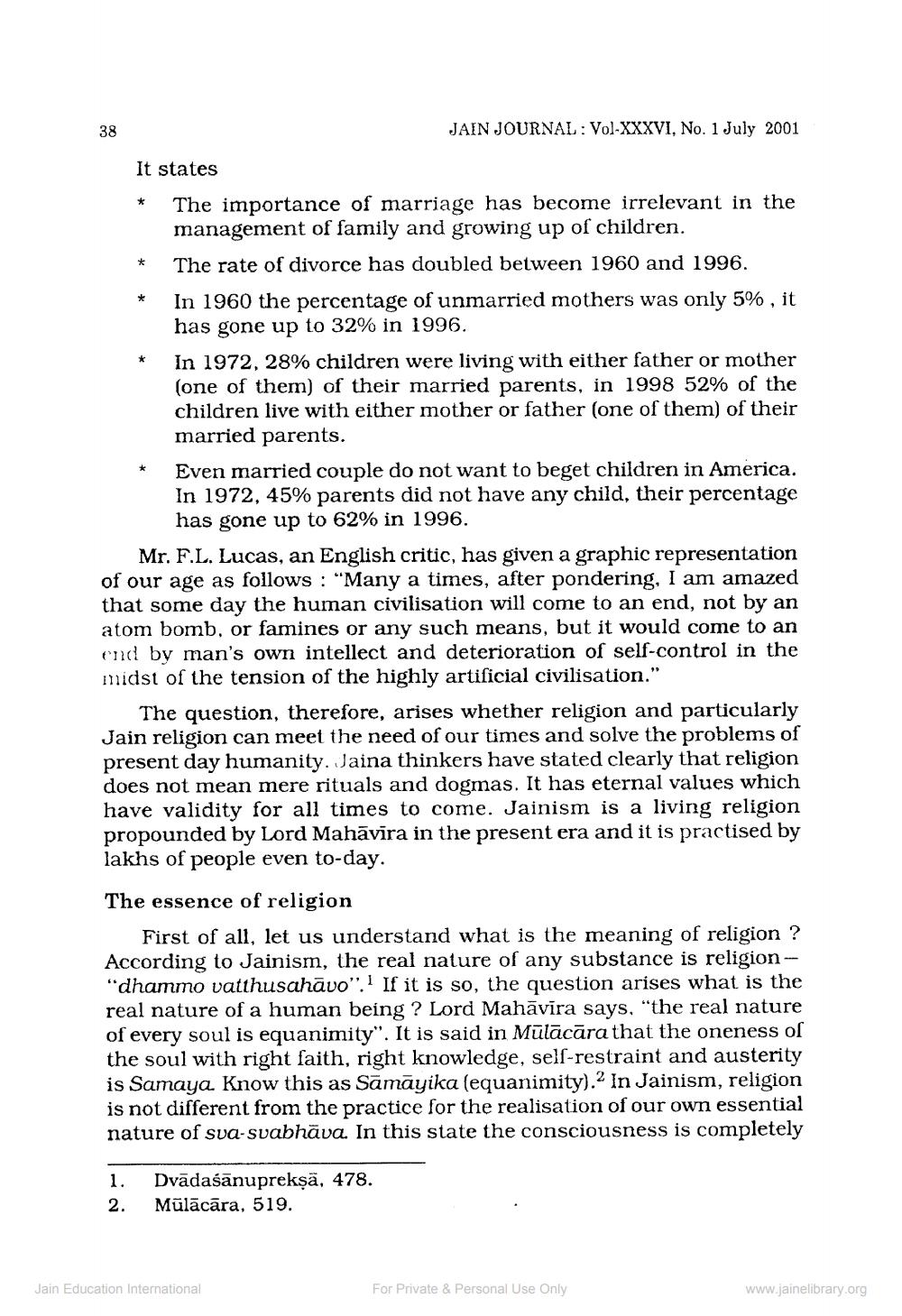________________
38
It states
The importance of marriage has become irrelevant in the management of family and growing up of children.
The rate of divorce has doubled between 1960 and 1996.
*
*
*
*
*
In 1960 the percentage of unmarried mothers was only 5%, it has gone up to 32% in 1996.
JAIN JOURNAL: Vol-XXXVI, No. 1 July 2001
In 1972, 28% children were living with either father or mother (one of them) of their married parents, in 1998 52% of the children live with either mother or father (one of them) of their married parents.
Even married couple do not want to beget children in America. In 1972, 45% parents did not have any child, their percentage has gone up to 62% in 1996.
Mr. F.L. Lucas, an English critic, has given a graphic representation of our age as follows: "Many a times, after pondering, I am amazed that some day the human civilisation will come to an end, not by an atom bomb, or famines or any such means, but it would come to an end by man's own intellect and deterioration of self-control in the midst of the tension of the highly artificial civilisation."
The question, therefore, arises whether religion and particularly Jain religion can meet the need of our times and solve the problems of present day humanity. Jaina thinkers have stated clearly that religion does not mean mere rituals and dogmas. It has eternal values which have validity for all times to come. Jainism is a living religion propounded by Lord Mahāvira in the present era and it is practised by lakhs of people even to-day.
The essence of religion
First of all, let us understand what is the meaning of religion? According to Jainism, the real nature of any substance is religion-"dhammo vatthusahāvo". If it is so, the question arises what is the real nature of a human being? Lord Mahāvīra says, "the real nature of every soul is equanimity". It is said in Mulācāra that the oneness of the soul with right faith, right knowledge, self-restraint and austerity is Samaya. Know this as Sāmāyika (equanimity).2 In Jainism, religion is not different from the practice for the realisation of our own essential nature of sva-svabhava. In this state the consciousness is completely
Dvādaśānuprekṣā, 478.
1.
2. Mūlācāra, 519.
Jain Education International
For Private & Personal Use Only
www.jainelibrary.org




